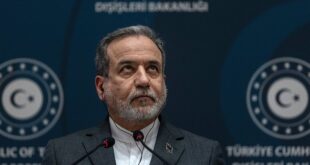The next president should move swiftly to reassure allies that the U.S. nuclear guarantee remains credible—or risk rapid nuclear proliferation.
One important consequence of the fraying of U.S. alliances over the last few years is the reemergence of concern in allied capitals about the credibility of the U.S. nuclear guarantee. In Europe, allies wonder whether the United States would be willing to defend Poland or the Baltics if Russia were to threaten them with nuclear attack. In Asia, China’s growing military might and North Korea’s acquisition of long-range missiles have raised similar concerns about Washington’s nuclear commitments.
Faced with these growing threats, can U.S. allies still rely on the United States’ nuclear umbrella to deter an attack? Because the answer is no longer evident, more and more voices in allied capitals have suggested that they may need to rely on other nuclear capabilities to ensure their security—and perhaps even acquire their own.
If we are to avoid a world of rapid nuclear proliferation, the next president will have to move swiftly to reassure allies that the U.S. nuclear guarantee remains credible.
If we are to avoid a world of rapid nuclear proliferation—in which not only countries such as Iran and Saudi Arabia move to acquire nuclear weapons but also long-standing allies such as South Korea and Turkey—the next president will have to move swiftly to reassure allies that the U.S. nuclear guarantee remains credible.
Most people have forgotten that the primary proliferation concern 50 years ago wasn’t about Pakistan, North Korea, or Iran but about U.S. allies such as Germany and Japan. In the end, both these and other allied nations were willing to forgo their own nuclear capabilities and sign on to the nuclear Nonproliferation Treaty as non-nuclear weapons states. But they did so only after obtaining an explicit guarantee from the United States that its nuclear forces would defend their security if needed. In the case of NATO, that guarantee was enshrined in its formal strategy, the forward deployment of U.S. nuclear weapons, the creation of a nuclear planning group, and the sharing of nuclear tasks and missions. In Asia, agreements were less formal but nevertheless committed Washington to come to its allies’ nuclear defense.
The next president needs to forestall destabilizing steps by allied nations as they rethink their nuclear security by clearly and unequivocally reaffirming that the United States’ alliances and collective defense commitments remain central to its national security. This affirmation must include a formal recommitment to allied nuclear security.
Words alone, however, may not be enough. The next administration should open up its nuclear planning processes to allies and include them in its deliberations on nuclear strategy, deployments, and modernization. It will also need to prioritize new nuclear arms control negotiations, starting with an extension of the New START agreement with Russia, while taking allied concerns about existing and evolving nuclear threats into account.
 Eurasia Press & News
Eurasia Press & News


